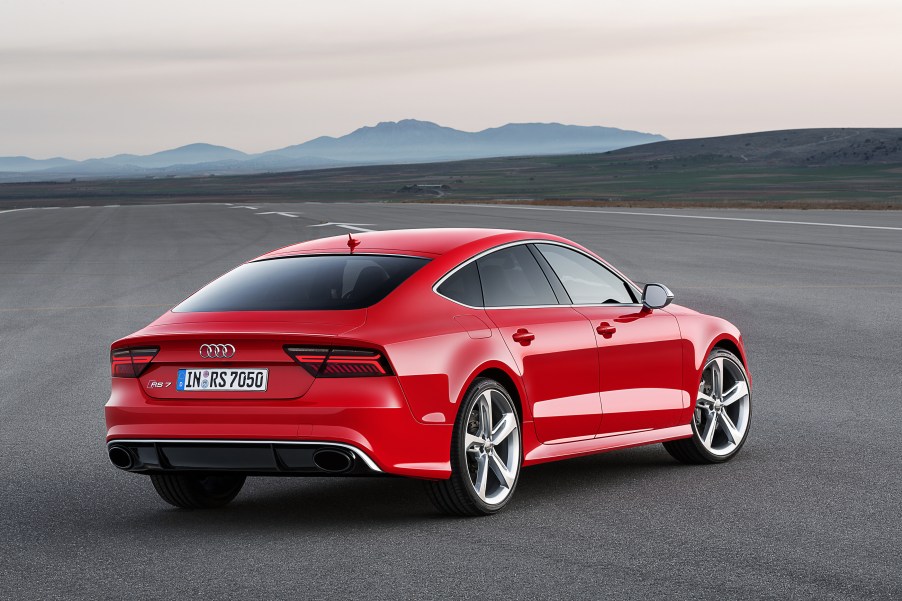
Investigation: VW and Audi Brake Systems Randomly Engaging
Automatic Emergency Braking Systems, or AEB Sytems, are a good thing when they work as anticipated. Otherwise, they can provide a false sense of security to a driver or possibly even create a bigger driving hazard. The AEB systems are being adopted by more and more auto manufacturers such as Acura, Audi, BMW, Chevrolet, Ford, Volkswagen, Volvo, and others. Now, a legal firm is investigating whether Volkswagen and Audi AEB Systems are working properly.

What is an Automatic Emergency Braking System
For us to get a better understanding of the situation, a definition of what the AEB System is and what it does will be helpful. According to Consumer Reports,
“Automatic Emergency Braking (AEB): The vehicle stops independently when it senses a crash is imminent to avoid a crash or to reduce the severity of a crash that can’t be avoided.”
Who makes good AEBs
Consumer Reports also graded the systems. This is what they were able to determine,
“Most satisfying systems, according to CR members: Genesis, Lexus, Tesla.”
In short, the AEB system will apply the brakes if a car has this system active and it senses an imminent impact.
That sounds like a great feature. It is certain that these systems have done a lot to reduce possible injuries when they have worked properly. That is not the concern.
What is the concern
The concern is that there have been reports of the AEB Systems engaging randomly. Those concerns have reached the ears of Kehoe Law Firm, P.C. Apparently, there have been enough concerns raised that the law firm has launched an investigation into random braking triggered by Audi and Volkswagen vehicles equipped with certain Bosch sensors.
From Kehoe’s press release,
“The investigation concerns whether VW and Audi vehicles equipped with AEB Systems containing Bosch mid-range radar sensors or long-range radar sensors have a safety defect that causes them to falsely engage randomly and unexpectedly, causing detection of non-existent obstacles and, thereby, automatically triggering the brakes and causing the VW and Audi vehicles with AEB Systems to abruptly, randomly or unexpectedly slow down or come to a complete stop, sometimes in the middle of traffic.”
How large is this concern
A braking system not working correctly is concern enough. However, a brake system that allegedly will brake randomly can be scary. So, it is important to find out right away what is causing these stoppages before people start abandoning their cars out of fear. Is it bad sensors? Is it poorly aimed brake sensors? How widespread is this concern? Has anybody been injured? Does this happen at highway speeds, or in stop and go city traffic speeds? These are all questions that are likely part of the investigation.
It is important to note that the Kehoe Law Firm press release calls this an investigation. It does not say it is a class-action lawsuit. So, it seems they are gathering information at this point. But, conceivably, it would not be a stretch to believe that this could turn into a class action lawsuit if enough data substantiates that there is indeed a problem with the braking systems.
Who VW and Audi owners should contact
Should owners or lessees have concerns about their Audi or VW, the legal firm provided some contact information on their press release,
“Kehoe Law Firm, P.C., Michael Yarnoff, Esq., (215) 792-6676, Ext. 804, myarnoff@kehoelawfirm.com, info@kehoelawfirm.com, to discuss potential legal claims.”

Nobody wants to be changing lanes on the highway and have their braking system seemingly arbitrarily apply the brakes. It could be dangerous and blocks traffic. Is that what is actually happening to Audi and VW owners with the Bosch AEB systems? Kehoe Law Firm is investigating to find out. Hopefully, answers will be coming soon.


